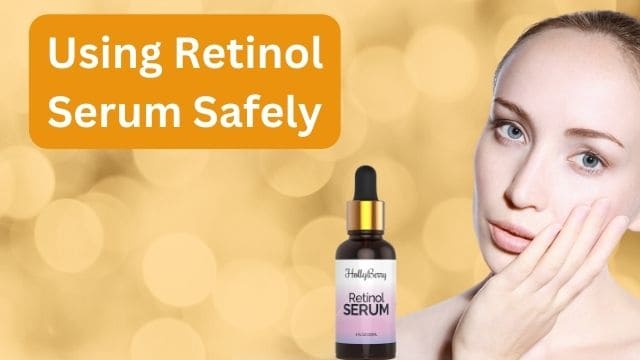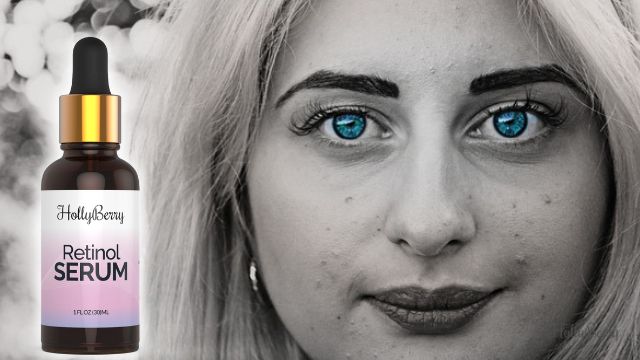
Introduction
A vitamin A derivative is retinol. Retinyl palmitate and retinyl acetate are just two of their many names. It has been demonstrated that retinol significantly enhances skin tone and even reduces the visibility of fine lines and wrinkles.
Because they help reduce pores and encourage the formation of collagen in your skin cells, they also aid in the treatment of acne. Retinol can be available in over-the-counter items like lotions or serums as well as prescription medicines like Eli Lilly Pharmaceuticals Inc.’s Differin gel or Tazorac gel, but it’s most frequently used to treat acne due to its capacity to reduce inflammation produced by germs on your face. You can order our retinol serum with free delivery here.
Retinol is a derivative of vitamin A
Retinol is a form of vitamin A. It’s used to treat acne and other skin problems, as well as hyperpigmentation (the discolouration caused by sun exposure). Retinol minimizes pores and helps with acne.
Retinol can help prevent acne by:
● Minimizing pores leads to less oil production and a reduction in redness.
● Helping to clear up existing breakouts.
Retinol also has anti-ageing properties that make it an excellent choice for minimizing wrinkles, fine lines, and enlarged pores. Long-term use of retinoids improves skin tone, fine lines and wrinkles, skin texture, and uneven pigmentation.
Retinoids are derivatives of vitamin A. They help your skin produce more collagen, which can help reduce fine lines and wrinkles. Retinol is a more potent version of retinoids, so it may be easier for you to see results than using a lower potency retinol product such as Differin or Tazorac (tretinoin).
Use a retinol serum at night
If you’re using a retinol serum at night, it’s important to note that this can increase sun sensitivity and could cause redness and irritation. It’s best to use the product in small amounts, only on problem areas like wrinkles or acne scars.
Retinol should be used for only a short time because of its potential side effects—you don’t want to overdo it! Using a retinol serum all day can cause your skin to dry, peel and get red.
Using a retinol serum all day can cause your skin to dry, peel and get red. The reason for this is that retinol is very drying on the skin. It’s important that you use a moisturizer after using a product with a high concentration of retinol in order to keep your skin hydrated.
Keep in mind that this process of peeling will likely happen no matter what type of product you’re using—it’s part of the natural aging process! So if it doesn’t bother you, great! But if it does bother you or make other symptoms worse (like irritation), stop using the product immediately until things calm down again.
Apply retinol serum after you wash your face
After you wash your face, apply a gentle cleanser and then follow it with a toner.
Then apply retinol serum liberally to the skin around your eyes and mouth area. You can add more if you like—but be careful not to use too much product at once! If you have sensitive skin or are on medication that makes you prone to redness, start off by applying this product every other day until your skin adjusts before increasing the frequency of use as needed.
Stop applying your retinol serum if it causes irritation
If you experience irritation, stop using the product. If you have sensitive skin, start with a small amount of retinol serum and then build up to a full dose. You may notice some irritation at first as your skin adjusts to the new ingredient in your routine—but this should go away within a few days!
If you’ve previously used topical retinoids (like tretinoin or adapalene), it’s important not to use an exfoliating agent that contains alpha hydroxy acids before applying these products because they can cause increased irritation on top of any other effects caused by those ingredients themselves.* Start by applying the retinol every third or fourth day until your skin gets used to it.
If you’re new to using retinol, start with a small amount and apply it to each area of your face in small amounts at night. You can also use this product as an eye cream if you have sensitive skin around the eyes.
With the proper application, retinol serum can be an effective anti-ageing tool.
- Start slowly. If you’re new to retinol, start with a small amount and build up from there. Too much can cause irritation, so be sure not to overdo it!
- When outdoors, wear SPF. Apply sunscreen before using your retinol serum if you plan to spend a lot of time in the sun (or any other skincare product). It’s important that you don’t expose yourself to UV rays while using retinol serum because this will prevent its full effect on your skin cell regeneration process—and may even cause further damage if left untreated for too long!
- Moisturize after application! Your skin needs moisture after applying topical products like retinol serums; otherwise, they won’t penetrate deeply into pores or creases where dirt accumulates more easily than anywhere else on our bodies.”
The drug class known as retinoids, which includes retinol, has been found to greatly boost skin tone and even reduce the appearance of fine lines and wrinkles.
It has been found that the vitamin A derivative retinol helps improve skin tone and even minimizes the visibility of fine lines and wrinkles. Retinol, a type of retinoid, is a medication that can only be obtained with a prescription.
Your body naturally produces collagen to fill up your skin, and retinol assists in this process. If you want to look younger without getting surgery or chemical peels, using a retinyl product can be a good option. Collagen provides it flexibility and a smoother texture.
Retinol, a strong vitamin A derivative, boosts cell turnover and promotes the body to manufacture more collagen, which plumps up the skin and makes you appear younger. It is frequently used to treat hyperpigmentation because it aids in blocking the production of melanin.
Retinol, a strong vitamin A derivative, boosts cell turnover and promotes the body to manufacture more collagen, which plumps up the skin and makes you appear younger. It is frequently used to treat hyperpigmentation because it aids in blocking the production of melanin.
When it comes to treating acne, retinoids are just as effective as salicylic acid or benzoyl peroxide—and they’re also less expensive!
Retinol is most commonly used to treat acne

Retinoids, a class of medications with the potential to greatly enhance skin tone and even eliminate the appearance of fine lines and wrinkles, are available over the counter as retinol, a vitamin A derivative. Although it’s most frequently used to treat acne, you can also use it as part of your regular skincare regimen.
A retinol serum can be applied directly to the skin just like any other serum. If you are using a product containing retinol for the first time, it is recommended that you start slowly by applying it every 2-3 days.
A retinol serum can be applied directly to the skin just like any other serum. If you are using a product containing retinol for the first time, it is recommended that you start slowly by applying it every 2-3 days. If irritation occurs after using the product, stop using it immediately and see your dermatologist if necessary.
Retinol is a powerful ingredient that works best when used at night because of its effect on hyaluronic acid production (the substance responsible for maintaining hydration in the skin). When applied during the day, retinol has less impact on your skin’s natural moisture levels because it doesn’t affect sebum production as much as other ingredients do; this means that less oil will be produced from within us all!
You should use sunscreen during the day if you are using this product overnight, or at least wear sunscreen when going outdoors in order to minimize sun damage.
You should use sunscreen during the day if you are using this product overnight, or at least wear sunscreen when going outdoors in order to minimize sun damage. Sunscreen is important for healthy skin because it helps prevent aging and sun damage. Therefore, you should apply sunscreen daily even if you are using retinol serum at night.
If your skin is sensitive to physical sunlight or burns easily, then we recommend that you wear an SPF 30+ broad spectrum UVA/UVB protective moisturizer before bedtime (or anytime). This will help protect your skin from free radicals that can cause wrinkles and premature ageing of the face over time.
Use moisturizer after applying this product as it can dry out your skin otherwise.
- Use moisturizer after applying this product as it can dry out your skin otherwise.
- Softer and smoother, too!
- The best moisturizers are those that are light, oil-free, and free of fragrances. They’ll also have SPF in them, so keep your face shielded from the sun when you’re outdoors—and inside too if you’re going to bed before 8 p.m!
My conclusion
If you’re looking for a product that may even out your skin tone and reduces the appearance of fine lines and wrinkles, retinol serum is a perfect option. When getting started, it’s crucial to carefully follow the instructions on the bottle because not everyone should use them.
Additionally, you should be careful not to use this product if you have sensitive skin or overnight. Please feel free to ask any questions you may have regarding this topical treatment. If you are thinking of trying a retinol serum you can order from us here.


